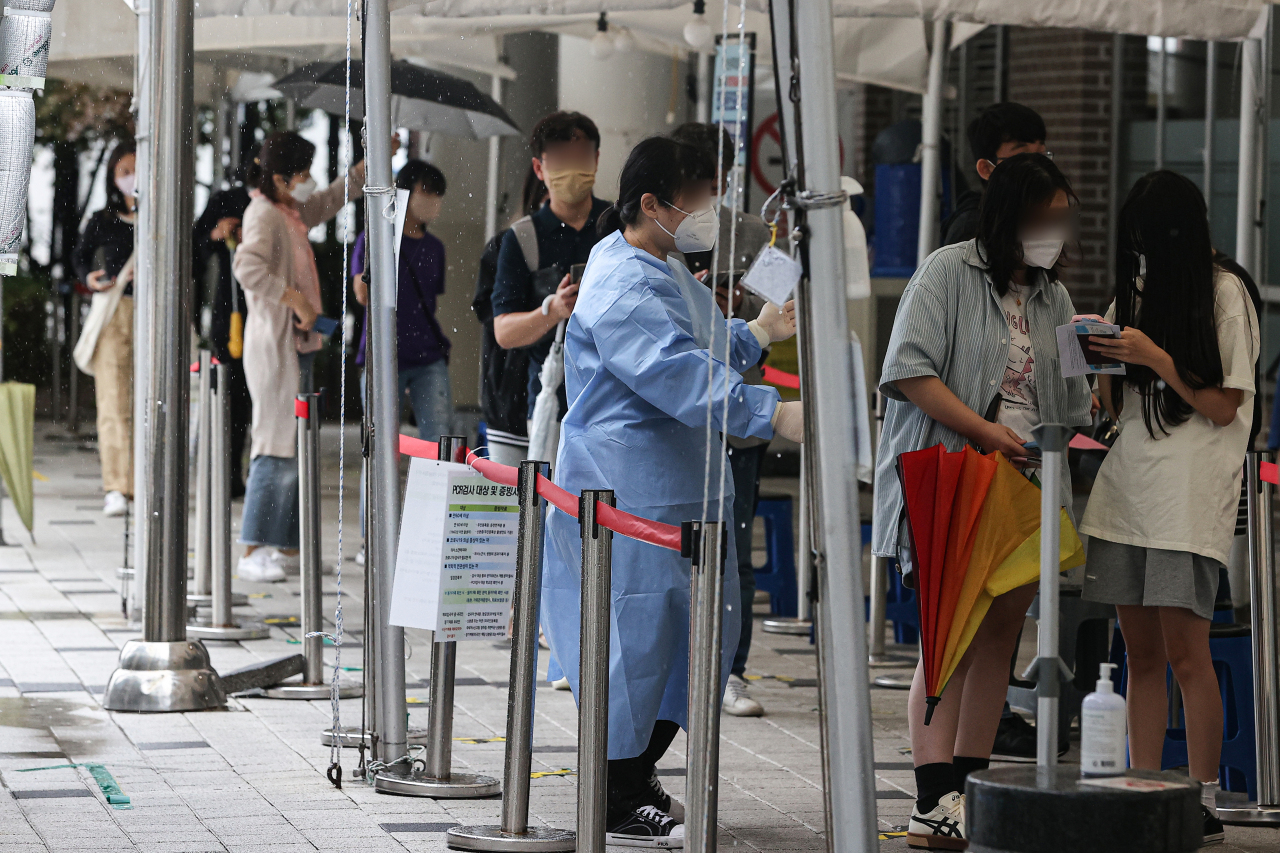Pay gap among companies returns to pre-pandemic level: data
By Kim Da-solPublished : Aug. 30, 2022 - 15:16

While the pay gap between large conglomerates and small- and medium-sized firms here may have been narrowing during the pandemic years, the disparity appears to have returned to the pre-pandemic level more recently, a report showed Tuesday.
According to a report released by the Korea Chamber of Commerce and Industry, the average wage at SMEs with less than 300 employees remained at 60.78 percent that of larger companies with 300 employees or above in 2019.
The disparity inched up to 63.29 percent in 2020 as companies refrained from raising wages, citing their pandemic-hit operations. But large companies started carrying out pay raises last year, widening the gap again to 61.72 percent.
The report said that the average wage growth rate at conglomerates was 6.4 percent in 2018, 0.3 percent in 2019 and minus 2.8 percent in 2020. But the figure spiked to 6.6 percent in 2021, returning to the pre-pandemic rate.
In contrast, SMEs’ wage growth rate was 4.4 percent in 2018, 3.7 percent in 2019 and 1.2 percent in 2020. Last year, the rate rose to 3.9 percent, still far short of the pre-pandemic rate.
The KCCI said the wage rise gap between big and smaller firms will become more severe as large conglomerates and tech firms have been raising wages drastically in efforts to secure and retain talent.
Recently, this has sparked the government’s concern, with Deputy Prime Minister and Minister of Economy and Finance Choo Kyung-ho publicly requesting conglomerates to refrain from making excessive wage hikes as that can “cause a vicious cycle of inflation.”
Meanwhile, the report also cited conglomerates’ seniority-based salary system as a reason for the country’s slow improvement in bridging the wage gap between generations.
Locally known as “hobongje,” the hierarchical pay system that gives employees increases in salary every year regardless of their productivity is more likely to be found at large companies with labor unions.
The report said 60.1 percent of conglomerates adopted such a system, while just 13.6 percent of SMEs did.
“Companies should consider revising the current pay system toward performance-based pay to lessen the negative impact to the job market, unemployment issues and more,” the report said.
In recent years, calls have grown to switch from a senior-based wage system that hinders diversity in the country’s job market, but no clear progress has been made -- mainly due to opposition from labor unions.









![[Kim Seong-kon] Democracy and the future of South Korea](http://res.heraldm.com/phpwas/restmb_idxmake.php?idx=644&simg=/content/image/2024/04/16/20240416050802_0.jpg&u=)








![[KH Explains] Hyundai's full hybrid edge to pay off amid slow transition to pure EVs](http://res.heraldm.com/phpwas/restmb_idxmake.php?idx=652&simg=/content/image/2024/04/18/20240418050645_0.jpg&u=20240418181020)

![[Today’s K-pop] Zico drops snippet of collaboration with Jennie](http://res.heraldm.com/phpwas/restmb_idxmake.php?idx=642&simg=/content/image/2024/04/18/20240418050702_0.jpg&u=)